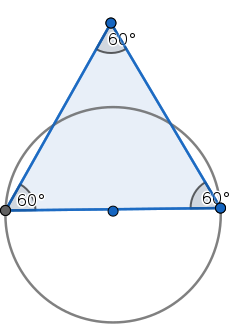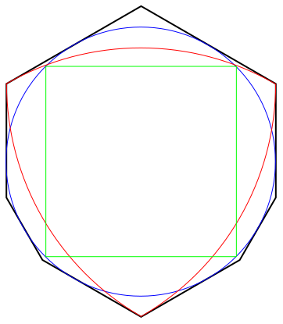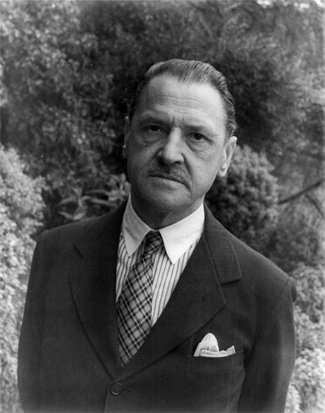poecilonym
n. a synonym for synonym
poecilonym
n. a synonym for synonym

In February 1943, hundreds of German women joined in a spontaneous protest in central Berlin. They were objecting to the roundup of some of the city’s last Jews — their husbands. In this week’s episode of the Futility Closet podcast we’ll describe the Rosenstrasse protest, a remarkable example of civil disobedience.
We’ll also ponder whether a computer can make art and puzzle over some unusual phone calls.
French street artist JR has twice transformed I.M. Pei’s iconic pyramid at the Musée du Louvre in Paris.
In 2016 he made it disappear by overlaying one face with an image of the background facade.
And just this month (below) he applied 2,000 stickers to the surrounding pavement to create an anamorphic illusion in which the pyramid seems to rise from a crater.
The paper stickers were quickly destroyed by wandering tourists, but that was expected, he said. “The images, like life, are ephemeral. Once pasted, the art piece lives on its own. The sun dries the light glue and with every step, people tear pieces of the fragile paper. The process is all about participation of volunteers, visitors, and souvenir catchers.”
A set of points has diameter 1 if no two points in the set are more than 1 unit apart. An example is an equilateral triangle whose side has length 1. What’s the smallest shape that can cover any such set? A circle of diameter 1 won’t cover our triangle; part of the triangle projects beyond the circle:

Of course a larger circle would work, but what’s the smallest shape will always do the job? Surprisingly, no one knows. When French mathematician Henri Lebesgue posed the problem to Gyula Pál in 1914, Pál suggested a modified hexagon (in black):

Here Pál’s shape manages to surround a circle (blue), a Reuleaux triangle (red), and a square (green), each of diameter 1, and in fact it will accommodate any such set. Its own area is 0.84529946. Will a smaller shape do the job? Well, yes, but the gains get increasingly fine: In 1936 Roland Sprague whittled Pál’s shape down to 0.844137708436, and in 1992 H.C. Hansen reduced it further to 0.844137708398. At this point observers Victor Klee and Stanley Wagon wrote, “[I]t does seem safe to guess that progress on [this problem], which has been painfully slow in the past, may be even more painfully slow in the future.” But in 2015 John Baez reached 0.8441153 with an exquisite adjustment to two regions in Hansen’s shape; the smaller of these would span only a few atoms if the shape were drawn on paper.
Is that the end of the story? No: Last October Philip Gibbs claimed a further reduction to 0.8440935944, and the search goes on. In 2005 Peter Brass and Mehrbod Sharifi showed that the universal cover must have an area of at least 0.832, so there’s room, at least in theory, for still further improvements.
(Thanks, Jacob.)
Anthony Howe creates wind-driven sculptures that somehow evoke both marine biology and alien machines.
“I attempt, with an economy of means, to construct objects whose visual references range from lo-tech sci-fi paraphernalia to microbiological or astronomical models,” he says. “Utilizing primarily stainless steel armatures that are driven either by hammered curvilinear shapes or flat fiberglass covered discs, I hope the pieces assume a spare, linear elegance when conditions are still, mutating to raucous animation when the wind picks up.”

How Socratic is Somerset Maugham!
What is virtue to him but a norm?
So the best propaedeutic
Is a process maieutic,
And all evil is merely bad form.
— R.B.S. Instone
In a 2009 study of responses to music, neuroscientist Valorie Salimpoor and her colleagues asked participants to bring in 3 to 5 pieces of “intensely pleasurable instrumental music to which they experience chills.” Then they measured their physiological response as they listened. They found that the “chills” effect is real — when the subjects reported that their pleasure at the music was highest, so was their sympathetic nervous system activity, a measure of emotional arousal.
One byproduct of the study is a list of more than 200 chills-inducing moments in music of various genres, with precise timestamps of the crucial points:
| Composer/Artist | Title | Chills |
| Beethoven | Piano Sonata No. 17 in D Minor (“The Tempest”) | 5:33 |
| Mahler | Symphony No. 1 – Movement 4 | 5:42, 9:57, 15:15 |
| Charles Mingus | Fables of Faubus | 0:20, 7:10 |
| Stan Getz | Round Midnight | 1:26 |
| Pink Floyd | Shine on You Crazy Diamond | 5:00 |
| Phish | You Enjoy Myself | 10:50 |
| Cannonball Adderley | One for Daddy-O | 0:40 |
| Los Angeles Guitar Quartet | Congan | 2:09 |
| Crowfoot | Larks in May | 0:10, 2:00 |
| Howard Shore | The Breaking of the Fellowship (film score) | 0:10, 0:55 |
| Dave Matthews Band | #34 | 1:40 |
| The Dissociatives | Paris Circa 2007 Slash 08 | 1:30 |
| Brad Mehldau | Knives Out | 4:45, 7:25 |
| Explosions in the Sky | First Breath After Coma | 2:25, 3:30, 8:10 |
These won’t work for everyone — music tastes are notoriously idiosyncratic — but it’s interesting to see what people find moving. The full list is here (Table_S1). (Note too that the timestamps relate to a particular recording, so consider them approximate in e.g. classical music.)
(Valorie N. Salimpoor, et al., “The Rewarding Aspects of Music Listening Are Related to Degree of Emotional Arousal,” PloS One 4:10 [2009], e7487.)
While working on his chemistry doctorate in 1947, Isaac Asimov was dissolving catechol in water when it occurred to him that if it were any more soluble it would dissolve before it even touched the surface. Amused by the idea, he invented a fictional substance called thiotimoline, one of whose chemical bonds projects forward into the future and another backward into the past. This makes the chemical “endochronic”: It starts dissolving before it makes contact with water. His first thought was to make this into a science fiction story.
It occurred to me, however, that instead of writing an actual story based on the idea, I might write up a fake research paper on the subject and get a little practice in turgid writing. I did the job on June 8, 1947, even giving it the kind of long-winded title that research papers so often have — ‘The Endochronic Properties of Resublimated Thiotimoline’ — and added tables, graphs, and fake references to non-existent journals.
John W. Campbell of Astounding Science Fiction accepted the article and agreed to publish it under a pseudonym, lest it alienate Asimov’s examiners at Columbia. In the end he published it under Asimov’s own name, but there was no harm done — the examiners joked about it at his defense and it even brought him some fame among chemists. He went on to write three short stories about the substance — which has taken on a rich existence in the hands of other authors.
(Isaac Asimov, “The Endochronic Properties of Resublimated Thiotimoline,” Astounding Science Fiction 41:1 [1948], 120-125. Thanks, Peter.)
What constitutes a hole? We recognize and refer to holes as we do ordinary material objects, but a hole doesn’t seem to have a material existence. A hole has a “host” (say, a doughnut), and it may have a “guest” (say, air), but neither of these is itself the hole. Somehow the hole is a something that’s made of nothing.
In a 1969 essay by David and Stephanie Lewis, Argle and Bargle argue over a hole in a piece of Gruyère cheese:
Bargle. How can something utterly devoid of matter be made of matter?
Argle. You’re looking for the matter in the wrong place. (I mean to say, that’s what you would be doing if there were any such things as places, which there aren’t.) The matter isn’t inside the hole. It would be absurd to say it was: nobody wants to say that holes are inside themselves. The matter surrounds the hole. The lining of a hole, you agree, is a material object. For every hole there is a hole-lining; for every hole-lining there is a hole. I say the hole-lining is the hole.
Bargle. Didn’t you say that the hole-lining surrounds the hole? Things don’t surround themselves.
Argle. Holes do. In my language, ‘surrounds’ said of a hole (described as such) means ‘is identical with’. ‘Surrounds’ said of other things means just what you think it means.
Bargle. Doesn’t it bother you that your dictionary must have two entries under ‘surrounds’ where mine has only one?
Also: If I fill in a hole in the ground, have I destroyed it? If I dig again in the same place, am I creating a new hole or restoring the old one?
(David Lewis and Stephanie Lewis, “Holes,” Australasian Journal of Philosophy 48:2 [August 1970], 206-212.)
In the Ubang language of Nigeria, men and women speak different languages. They understand each other perfectly, but “It’s almost like two different lexicons,” says anthropologist Chi Chi Undie. “There are a lot of words that men and women share in common, then there are others which are totally different depending on your sex. They don’t sound alike, they don’t have the same letters, they are completely different words”:
| English | Male | Female |
| yam | itong | irui |
| clothing | nki | ariga |
| dog | abu | okwakwe |
| tree | kitchi | okweng |
| water | bamuie | amu |
| cup | nko | ogbala |
| bush | bibiang | déyirè |
| goat | ibue | obi |
Raised by their mothers and other women, boys grow up speaking the female language, but at age 10 they’re expected to switch, unbidden, to the male. “There is a stage the male will reach and he discovers he is not using his rightful language,” says Chief Oliver Ibang. “Nobody will tell him he should change to the male language. … When he starts speaking the men language, you know the maturity is coming into him.”
“God created Adam and Eve and they were Ubang people,” he says. He had planned to give two languages to each ethnic group, but after the giving two to the Ubang he realized there were not enough languages to continue. “So he stopped. That’s why Ubang has the benefit of two languages — we are different from other people in the world.”